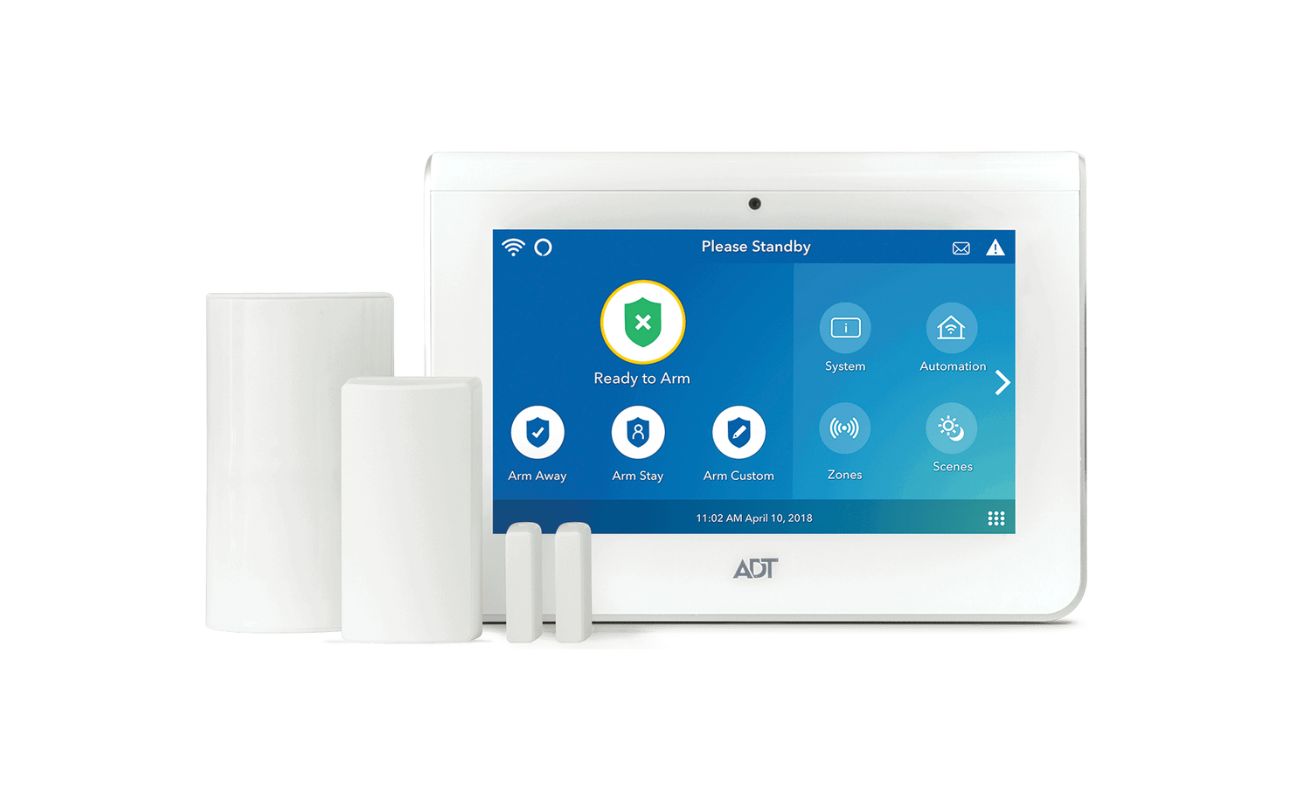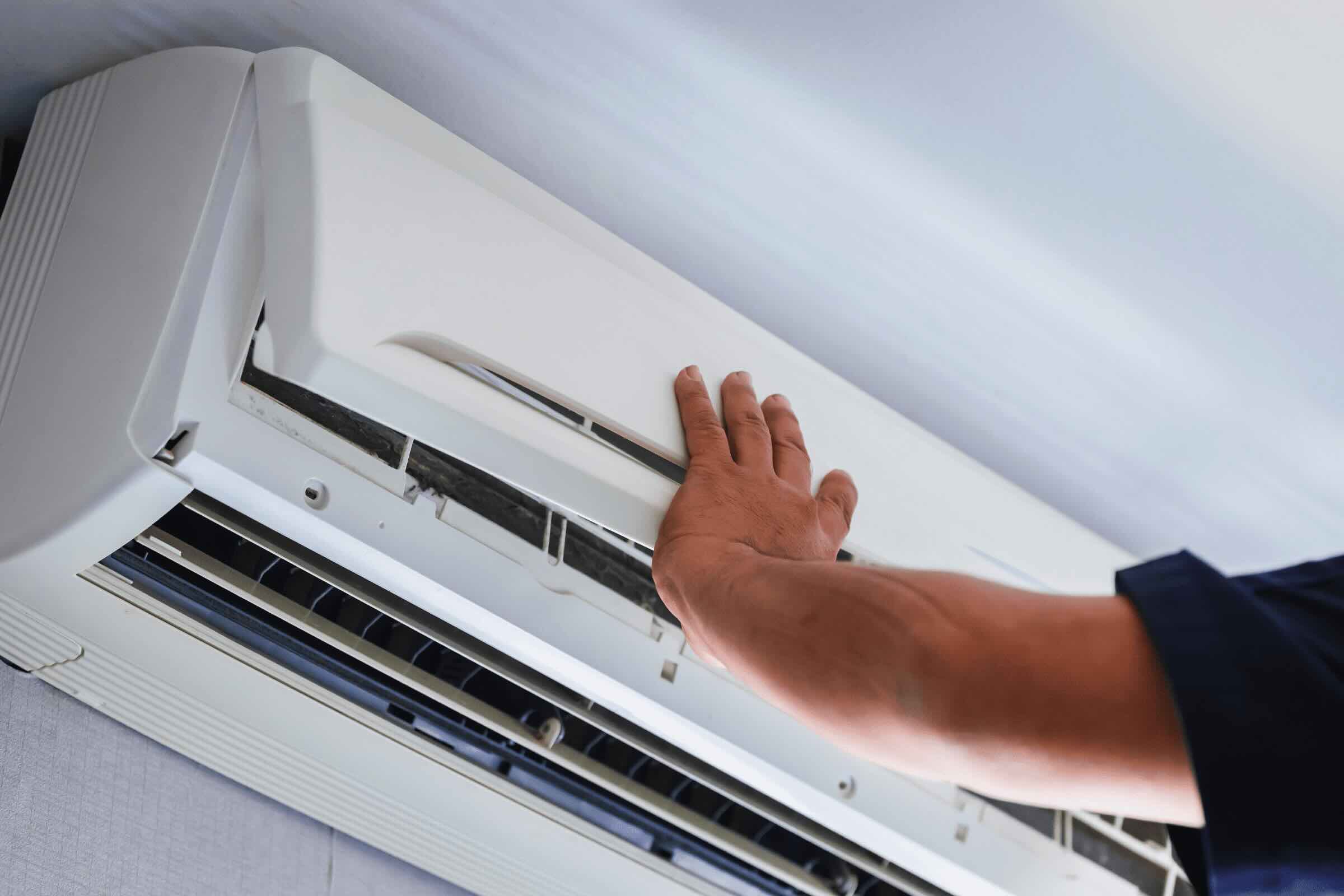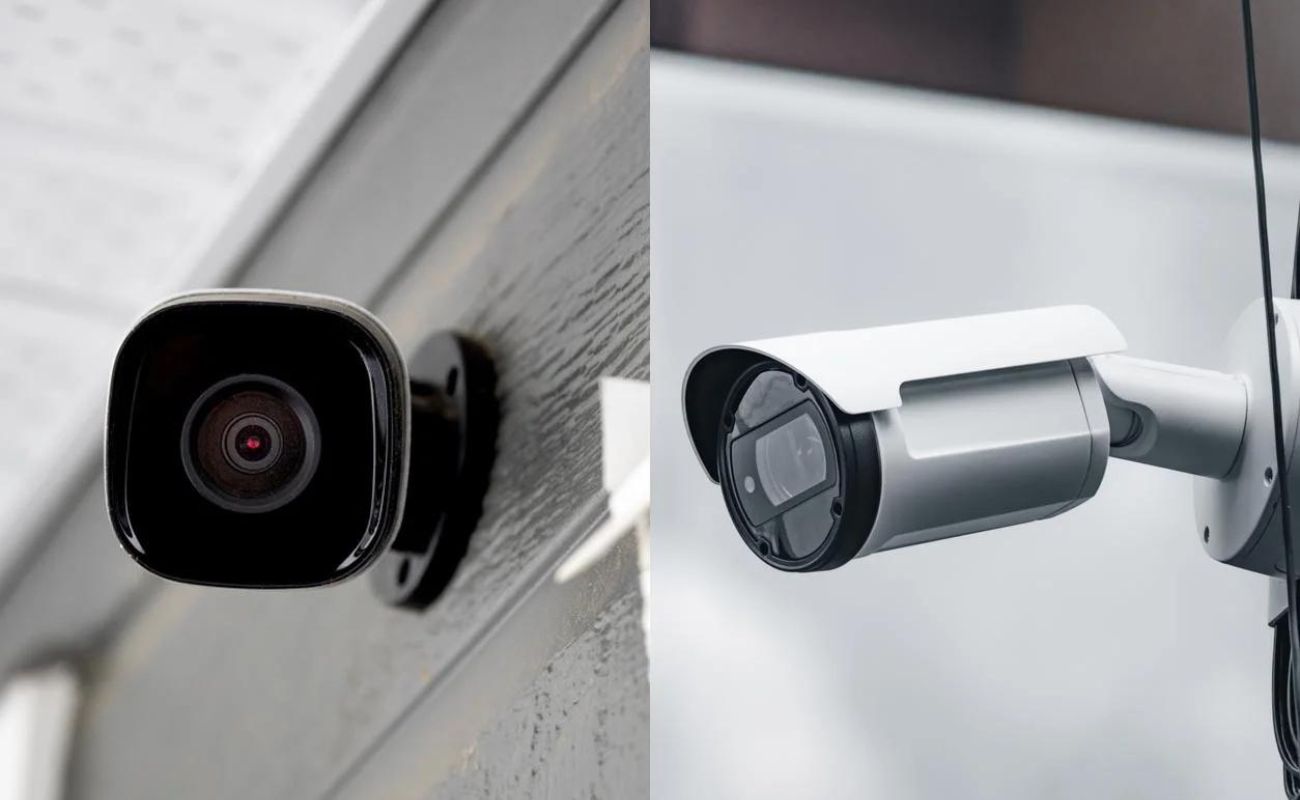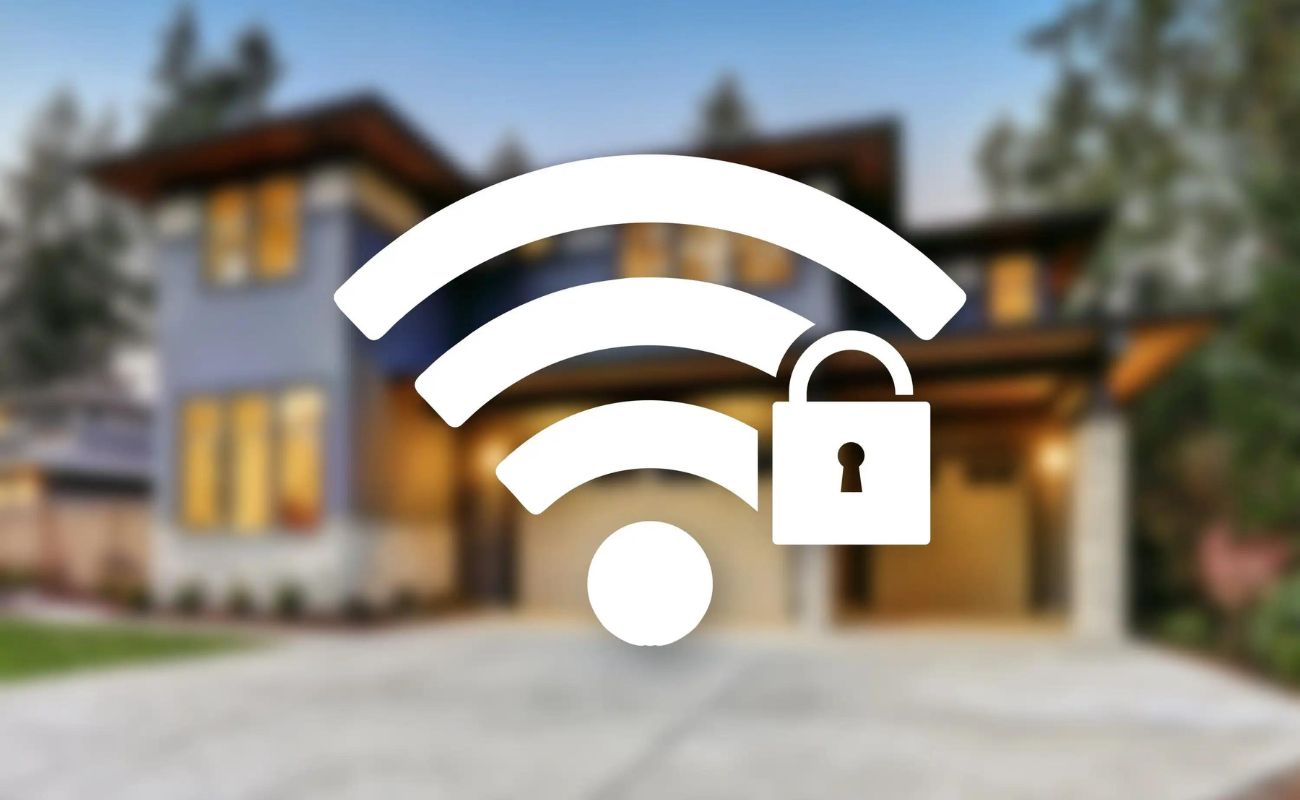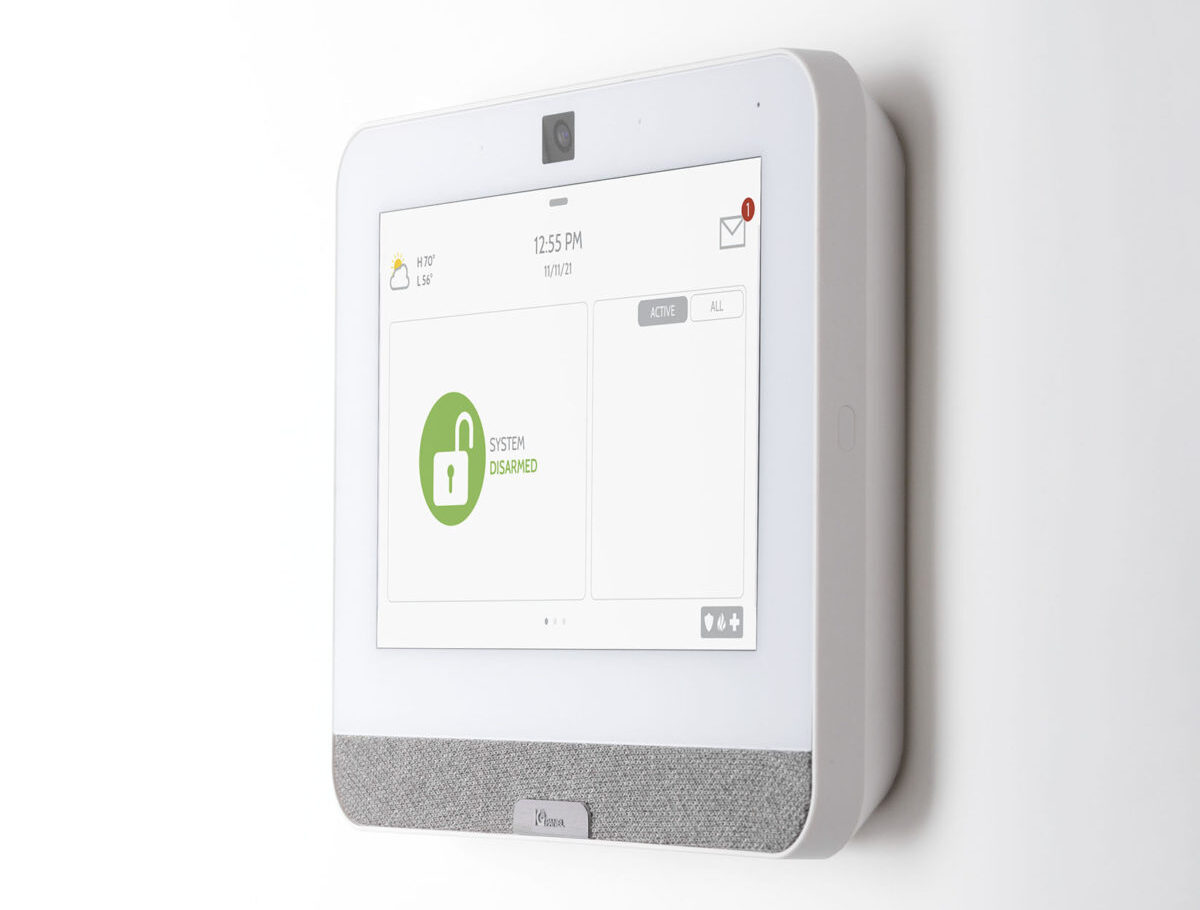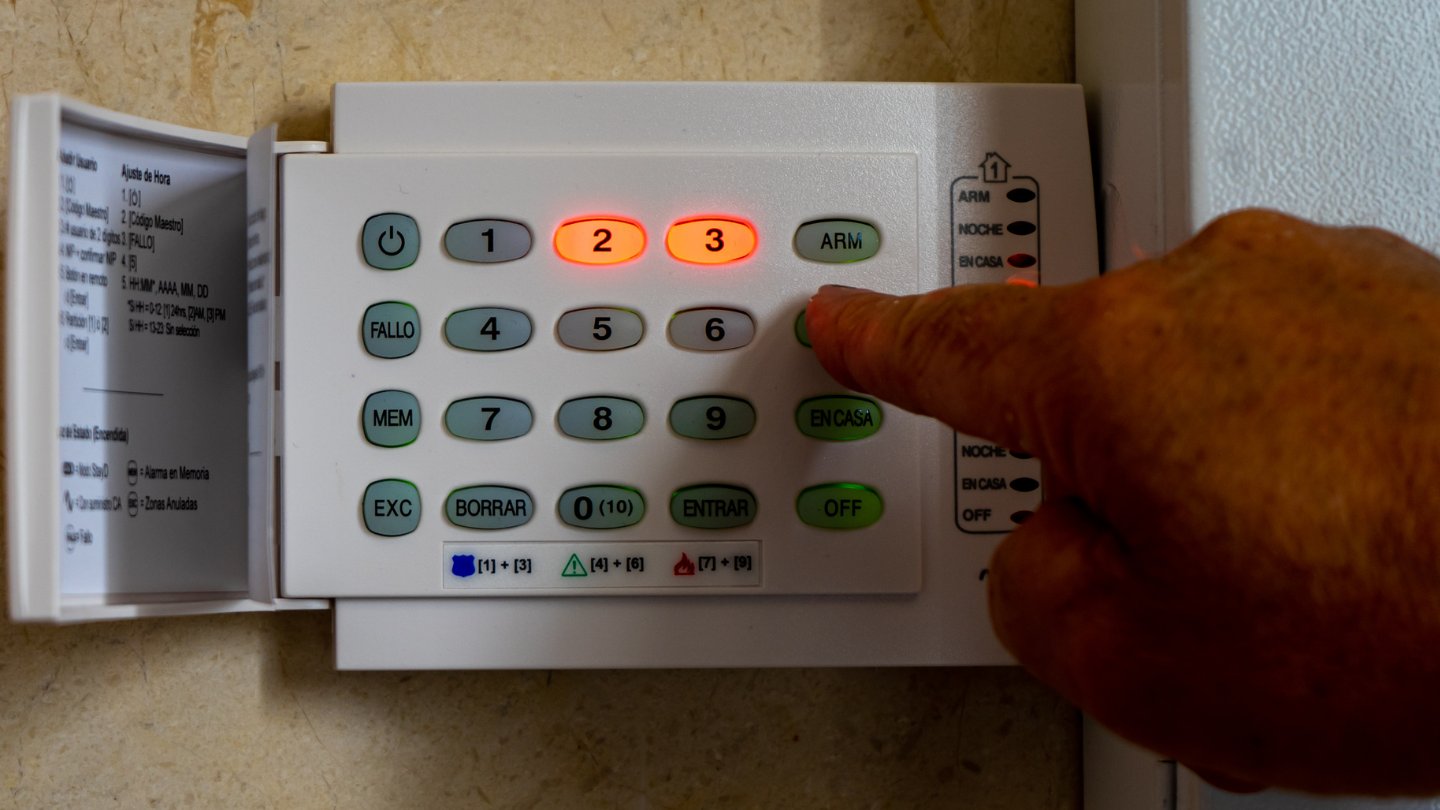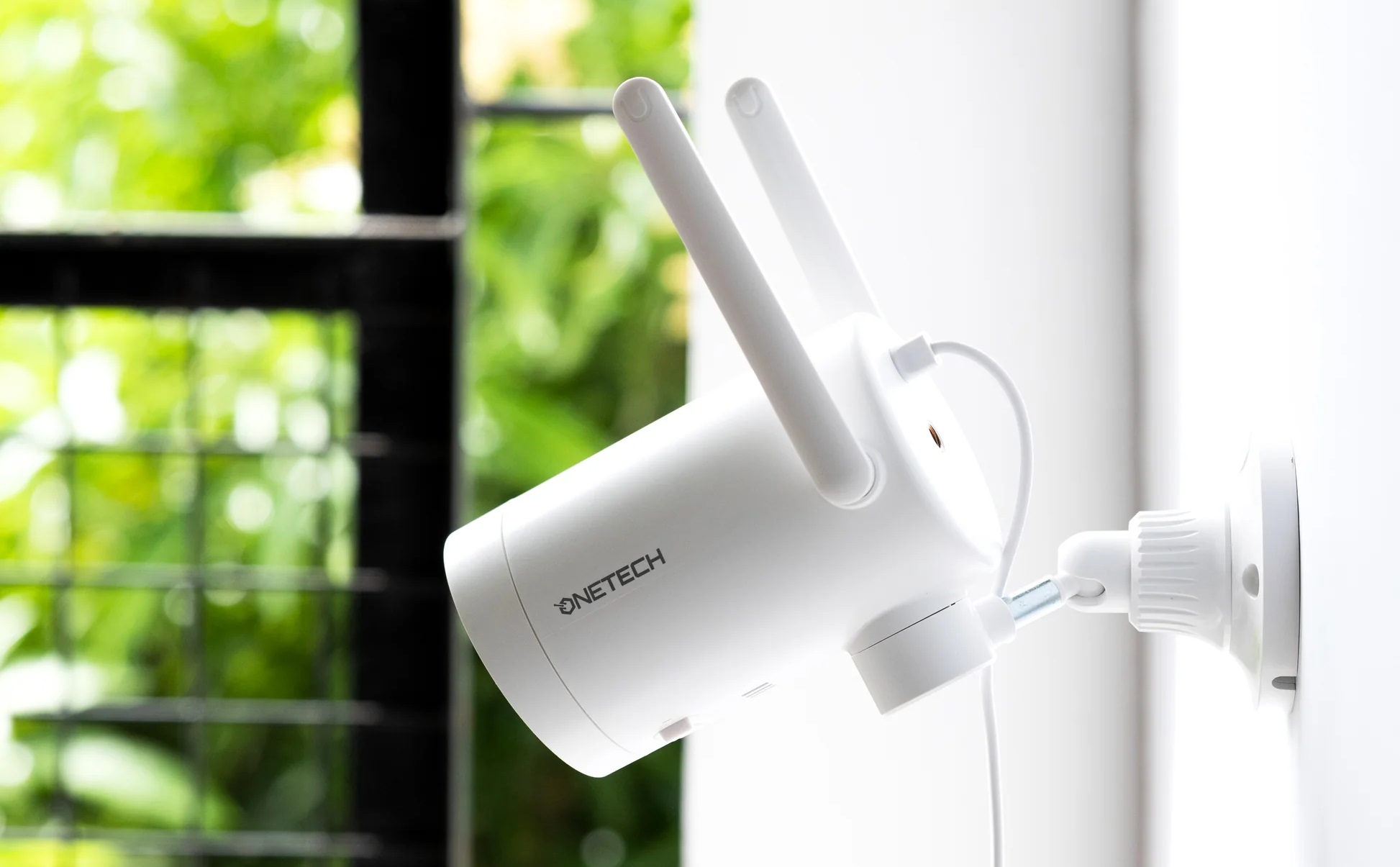Home>Home Security and Surveillance>How To Stop Home Security Calls
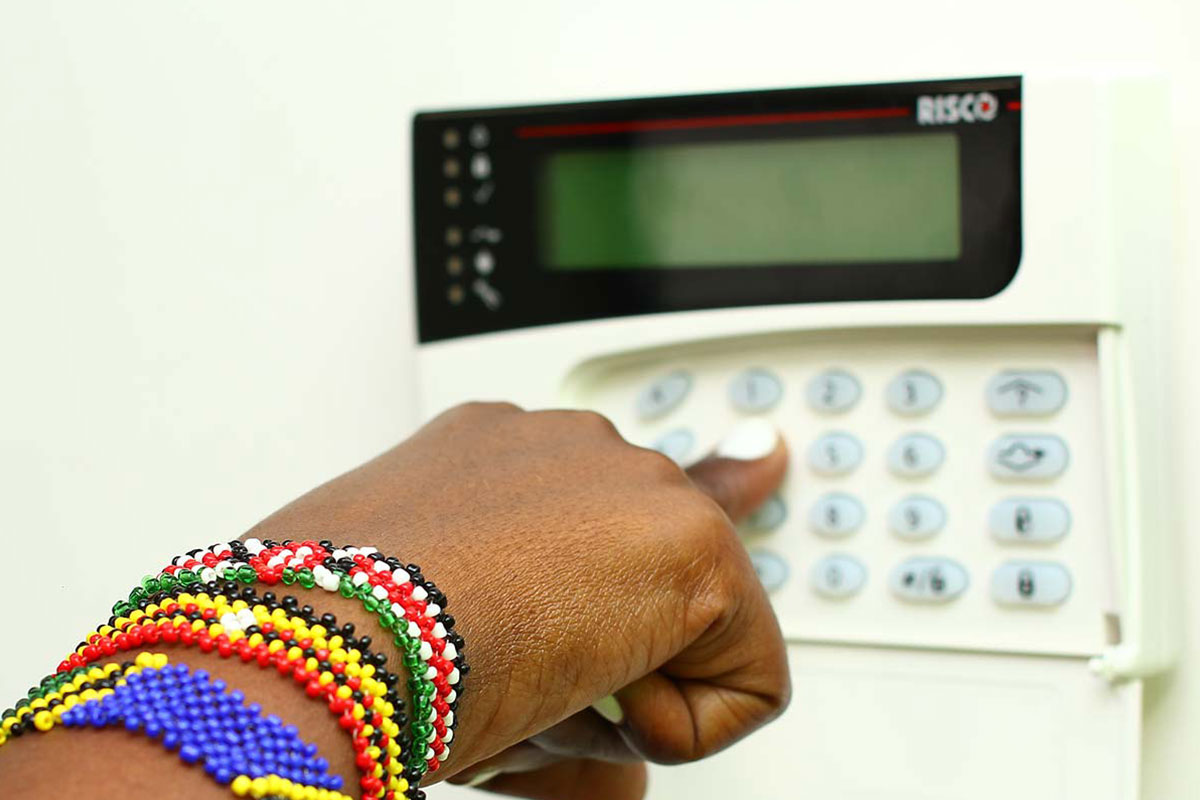

Home Security and Surveillance
How To Stop Home Security Calls
Modified: March 6, 2024
Learn effective strategies to stop unwanted home security calls. Discover how to enhance your home security and surveillance and reduce annoying phone interruptions.
(Many of the links in this article redirect to a specific reviewed product. Your purchase of these products through affiliate links helps to generate commission for Storables.com, at no extra cost. Learn more)
Introduction
Welcome to the world of home security and surveillance! In today’s modern age, ensuring the safety of our homes and loved ones is of utmost importance. And with advancements in technology, we now have access to a wide array of home security systems and surveillance options to choose from. From smart doorbells to indoor and outdoor cameras, these devices provide us with peace of mind by allowing us to monitor and protect our homes remotely.
However, along with the benefits of home security systems come the unwanted side effects – pesky and unsolicited home security calls. We have all experienced the frustration of receiving these calls at the most inconvenient times. They disrupt our day, interrupt important tasks, and, in some cases, can even be scams or attempts at fraud.
In this article, we will dive deeper into the issue of home security calls and discuss the reasons behind them. We will also explore the legal rights and regulations that protect us from such unwanted solicitations. Most importantly, we will provide you with practical steps to stop these home security calls so you can enjoy the full benefits of your home security system without the annoying interruptions.
So, if you are ready to regain control of your home security experience and put an end to those unwanted calls, read on! We have got you covered with valuable tips and strategies to help you reclaim your peace and privacy.
Key Takeaways:
- Protect Your Privacy
Register your number on the Do Not Call Registry, block unwanted numbers, and be cautious when sharing personal information to minimize unwanted home security calls and safeguard your privacy. - Take Legal Action if Needed
Explore legal options if persistent unwanted calls continue, including reporting violations to the FTC and consulting with an attorney to protect your rights as a consumer.
Read more: How To Stop Ge Home Security Calls
Understanding the Issue of Home Security Calls
Before we delve into the solutions, it’s important to understand the nature of the problem. Home security calls, also known as telemarketing calls, are typically initiated by companies selling home security systems, monitoring services, or related products. These calls are often made using automated dialing systems, which allow the company to reach a large number of potential customers in a short period of time.
While some of these calls may be legitimate, many can be categorized as unwanted or even illegal. Unsolicited calls can come from companies you have never interacted with, or they might be a direct result of sharing your contact information with a third party, such as signing up for a contest or subscribing to an online service.
The issue with home security calls goes beyond mere inconvenience. There are several reasons why these calls can be frustrating or even alarming:
- Disruption: Home security calls can interrupt your daily routine and cause unnecessary distractions, especially during important activities or moments of relaxation.
- Potential scams: Unfortunately, there are fraudulent telemarketing schemes that prey on unsuspecting homeowners, aiming to obtain personal information or financial details under the guise of selling home security products or services.
- Privacy invasion: Constant bombardment of home security calls can be perceived as an invasion of privacy. Your home should be a safe haven, and unwanted solicitations can undermine that sense of security.
- Time-consuming: Dealing with numerous unwanted calls can be time-consuming, as you may find yourself repeatedly declining offers or trying to end lengthy sales pitches.
By understanding the issue of home security calls, you can take proactive steps to protect yourself from their negative effects. From legal rights to practical solutions, we will cover all aspects of dealing with unwanted home security calls in the following sections.
Reasons for Unwanted Home Security Calls
Unwanted home security calls can be attributed to various factors, ranging from legitimate marketing tactics to illegal methods employed by scammers. Understanding these reasons can help you navigate the landscape of home security calls and take appropriate action to minimize their occurrence. Here are some common reasons behind unwanted home security calls:
- Lead Generation: Companies often purchase lead lists that contain contact information of individuals who have expressed interest in home security systems or related products. These lists are commonly acquired from online forms, surveys, or even public records. Unfortunately, some lead lists may also include outdated or inaccurate information, resulting in calls to individuals who are not interested or have already obtained a home security system.
- Robocalls: Automated dialing systems, also known as robocalls, are commonly utilized by telemarketing agencies to reach a large number of potential customers efficiently. While some robocalls may be legal, many unsolicited home security calls are made using illegal robocalling practices, disregarding the regulations set by government agencies.
- Third-Party Sharing: In some cases, you may have unknowingly consented to sharing your contact information with third parties when signing up for a service, participating in a survey, or entering a contest. These third parties may then sell your information to home security companies, leading to unsolicited calls.
- Scammers and Fraudsters: Unfortunately, the realm of home security calls is not immune to scams and fraudulent activities. Scammers may pose as legitimate home security companies, attempting to gather personal information or coerce unsuspecting individuals into making financial transactions. Falling victim to such scams can result in financial loss and potential identity theft.
- Unethical Practices: Some home security companies may engage in aggressive or unethical marketing practices, repeatedly calling individuals who have expressed disinterest or have already declined their offers. These calls can be intrusive and create a negative perception of the company, affecting its reputation.
It’s important to note that not all home security calls are unwanted or illegal. Legitimate businesses may reach out to provide valuable information, special offers, or updates regarding their products and services. However, it’s essential to distinguish between legitimate calls and unsolicited or fraudulent ones to protect your privacy and ensure a positive home security experience.
In the next sections, we will explore the legal rights and regulations that protect you from unwanted home security calls, as well as practical steps you can take to stop them and regain control over your phone line.
Legal Rights and Regulations
When it comes to dealing with unwanted home security calls, it’s crucial to be aware of the legal rights and regulations that protect you as a consumer. Various laws and agencies are in place to ensure your privacy and safeguard against unsolicited telemarketing calls. Understanding these regulations can empower you to take appropriate action and put an end to unwanted home security calls. Here are some key legal rights and regulations to be aware of:
- Telephone Consumer Protection Act (TCPA): Enacted in 1991, the TCPA sets guidelines for telemarketing practices and protects consumers from unsolicited calls, faxes, and text messages. Under the TCPA, telemarketers are required to obtain prior express consent before making automated or prerecorded calls to residential phone numbers. If you haven’t given explicit permission to receive such calls, you have the right to take legal action against the responsible parties.
- National Do Not Call Registry: The National Do Not Call Registry is a free service provided by the Federal Trade Commission (FTC) in the United States. By registering your phone number on the Do Not Call Registry, you can indicate your preference to not receive telemarketing calls. Once your number is registered, telemarketers are legally required to refrain from calling you, unless they have a pre-existing business relationship with you or you have given them explicit consent to contact you.
- Federal Communications Commission (FCC) Regulations: The FCC regulates various aspects of telecommunications, including telemarketing practices. They have implemented rules and regulations to combat unwanted calls, including restrictions on robocalls and guidelines for calling hours. Telemarketers must comply with these regulations and seek compliance with consumer preferences, such as maintaining “do not call” lists and promptly honoring opt-out requests.
- State-Specific Laws: In addition to federal regulations, many states have implemented their own laws to further enhance consumer protection against unwanted calls. These state-specific laws may provide additional requirements for telemarketers or offer stronger remedies for violations. It’s important to familiarize yourself with the specific laws in your state to understand your rights and the options available to you.
By being aware of these legal rights and regulations, you can take a proactive approach in dealing with unwanted home security calls. In the next sections, we will discuss practical steps you can take to stop these calls and regain control over your phone line.
Steps to Stop Home Security Calls
Now that you have a better understanding of the issue of home security calls and the legal framework in place, it’s time to take action to stop these unwanted interruptions. Here are some practical steps you can take to regain control over your phone line and put an end to home security calls:
- Register Your Number on the Do Not Call List: Start by registering your phone number on the National Do Not Call Registry. This will indicate your preference to not receive telemarketing calls. You can register online or by calling the registry’s toll-free number. Telemarketers are legally required to honor this request within a specific timeframe.
- Block Unwanted Numbers: Most smartphones offer call-blocking features that allow you to block specific numbers. Whenever you receive an unwanted home security call, block the number to prevent future calls from that particular source. Over time, this can significantly reduce the number of unwanted calls you receive.
- Be Cautious when Sharing Your Information: Exercise caution when sharing your contact information, especially online. Be mindful of the privacy policies and terms of service of the websites you visit. Avoid providing your phone number unless it is absolutely necessary and from trusted sources.
- Report Violations to the Federal Trade Commission (FTC): If you continue to receive unwanted calls despite being registered on the Do Not Call Registry, report the violations to the FTC. They have a complaint portal where you can provide details about the unwanted calls, helping the agency take action against the responsible parties.
- Consider Call Screening Services or Call Blockers: Explore options such as call screening services or call blockers offered by your phone service provider. These services can automatically identify and block unwanted calls, including home security calls, based on known spam numbers or caller ID information.
- Opt for Home Security Systems that Offer Privacy Options: When choosing a home security system, opt for those that prioritize privacy. Look for systems that allow you to control your data, including who has access to it and how it is used. Read the privacy policies and terms of service to ensure your information remains secure and will not be shared with third-party marketers.
- Explore Legal Actions if Necessary: In cases where you believe your rights have been violated or you have fallen victim to a scam, consult with legal professionals to explore your options for taking legal action. They can guide you through the process and help you seek remedies for the damages you have suffered.
By following these steps, you can significantly reduce the number of unwanted home security calls and enjoy the full benefits of your home security system without the constant interruptions. Remember, reclaiming your privacy and peace of mind is possible with the right strategies in place.
Now that you are armed with these practical solutions, take action and regain control over your phone line today!
Register Your Number on the Do Not Call List
One of the first steps you can take to stop unwanted home security calls is to register your phone number on the National Do Not Call Registry. This registry, provided by the Federal Trade Commission (FTC), allows you to indicate your preference to not receive telemarketing calls.
To register your number, you can visit the Do Not Call Registry website or call the registry’s toll-free number. The process is simple and free of charge. You will need to provide your phone number and email address for verification purposes. Once successfully registered, telemarketers are legally required to honor your request and refrain from making unsolicited calls to your number, with some exceptions.
It’s important to note that the Do Not Call Registry only applies to telemarketing calls. Therefore, you may still receive calls from charities, political campaigns, surveys, or companies with which you have an existing business relationship. However, you can request these organizations to remove your number from their calling lists if you no longer wish to receive calls from them.
Registering your number on the Do Not Call Registry offers several benefits:
- Reduction of unwanted calls: By registering your number, you significantly decrease the number of unwanted telemarketing calls, including those related to home security.
- Legal protection: Telemarketers who continue to call you after you have registered your number may be in violation of federal regulations, providing you with legal recourse against them.
- Convenient and hassle-free: Registering your number on the Do Not Call Registry is a simple process that can be done online or over the phone, saving you time and effort in dealing with unwanted calls.
- Peace of mind: Knowing that your number is registered on the Do Not Call Registry gives you peace of mind, allowing you to enjoy your home security system without constant interruptions.
It’s important to note that while registering your number on the Do Not Call Registry is an effective step in reducing unwanted calls, it may not eliminate them entirely. Some unscrupulous telemarketers may still attempt to reach you, even if they are not adhering to the regulations. In such cases, it’s important to be aware of other steps you can take to block or report these calls.
By taking advantage of the Do Not Call Registry, you are asserting your rights as a consumer and actively working towards minimizing unwanted home security calls. So, if you haven’t already done so, register your number today and take control of your phone line!
Block Unwanted Numbers
Blocking unwanted numbers is an effective strategy to put an end to home security calls and other unwanted solicitations. Most smartphones, as well as landline phones with caller ID capability, offer the option to block specific numbers. By utilizing this feature, you can prevent calls from reaching your phone, providing a quick and straightforward solution to stop unwanted communication.
Here are steps you can follow to block unwanted numbers:
- Identify the unwanted numbers: Take note of the phone numbers from which you are receiving home security calls or any other unwanted solicitations. This information will be needed to set up the call blocking feature.
- Access the call blocking feature: On your smartphone, go to the Phone app and look for the option to block numbers. The location of this feature may vary depending on the make and model of your phone. For landline phones, consult the user manual to find instructions on how to block calls.
- Add the unwanted numbers to the block list: Follow the prompts or menu options on your phone to add the unwanted numbers to the block list. Typically, you can manually enter the number or select it from your call history or contacts. Some phones also allow you to block calls from private or unknown numbers.
- Verify the blocking: After adding the unwanted numbers to the block list, test the feature by asking a friend or family member to call from a blocked number. Ensure that their call is not getting through to your phone.
- Regularly update the block list: As you continue to receive unwanted home security calls, update your block list by adding new numbers to it. This proactive approach ensures that the calls from blocked numbers are continually prevented from reaching your phone.
Blocking unwanted numbers offers several advantages:
- Immediate relief: By blocking unwanted numbers, you can stop the interruptions from home security calls right away, providing instant relief and peace of mind.
- Customized control: You have full control over which numbers to block, allowing you to tailor the list according to your specific needs and preferences.
- Flexibility: The call blocking feature can be easily turned on or off, giving you the flexibility to manage your call preferences as desired.
- Minimized contact with scammers: Blocking unwanted numbers reduces the chance of falling victim to scams or fraud attempts carried out through home security calls.
While blocking unwanted numbers is a highly effective approach, it’s important to note that scammers and unwanted callers may change their numbers or use techniques to hide their true identity. Thus, it’s recommended to supplement call blocking with other strategies, such as registering your number on the National Do Not Call Registry and reporting violations to the appropriate authorities.
By utilizing the call blocking feature on your phone, you can take control of your incoming calls and put an end to the hassle of unwanted home security calls. Ensure your phone is equipped with this useful feature, and start blocking those unwanted numbers today!
Register your phone number on the National Do Not Call Registry to reduce unwanted home security calls. You can also ask the caller to put you on their do not call list.
Be Cautious when Sharing Your Information
When it comes to stopping home security calls, one proactive measure you can take is to be cautious when sharing your personal information. By being mindful of how and where you provide your contact details, you can minimize the chances of your information falling into the wrong hands and receiving unsolicited calls. Here are some essential tips to consider:
- Read privacy policies: Before providing your information on any website or to any company, take the time to read their privacy policy. Look for statements on how they collect, use, and protect your data. Only provide your contact information to trusted entities with clear privacy practices in place.
- Minimize unnecessary disclosures: Be cautious about sharing your phone number unless it is absolutely necessary. Evaluate whether a service, survey, or form truly requires your contact information. The more you limit its exposure, the lower the chances of receiving unwanted calls.
- Opt out of information sharing: Whenever you have the option, take advantage of the opportunity to opt out of information sharing. Many online forms and subscriptions allow you to choose whether you want your contact details to be shared with third parties. Exercise this option to maintain control over who can contact you.
- Avoid public listings: Consider whether you need to have your phone number publicly listed in directories or online listings. If possible, opt for an unlisted or private number to reduce the likelihood of telemarketing calls.
- Be cautious with online forms: When filling out online forms, make sure they are secure and have encryption measures in place. Look for the lock symbol in the URL bar and check that the website has an “https” prefix, indicating a secure connection. Avoid providing personal information on unsecured websites.
- Question information requests: If a caller or an online form asks for information that seems unnecessary or suspicious, don’t hesitate to question the request. Legitimate organizations should be able to provide a valid reason for collecting specific pieces of information.
- Consider disposable phone numbers: In situations where you anticipate potential unsolicited calls, consider using disposable phone numbers or temporary phone services. These services provide you with a temporary number that can be deactivated or discarded once its purpose is fulfilled. This can help protect your main phone number from being added to telemarketing lists.
By adopting these cautious practices when sharing your personal information, you can reduce the likelihood of receiving unwanted home security calls. Remember, being proactive in protecting your privacy is key to minimizing unwanted solicitations and staying in control of your communication channels.
However, it’s important to note that even with precautions in place, your information may still find its way into the hands of telemarketers through various channels. Therefore, it’s important to continue employing other strategies, such as call blocking and registering your number on the Do Not Call Registry, to further protect yourself from home security calls.
By being vigilant and selective with your information sharing, you can create a protective barrier against unwanted home security calls and maintain your privacy and peace of mind.
Report Violations to the Federal Trade Commission (FTC)
If you continue to receive unwanted home security calls despite taking preventive measures, it is important to report these violations to the Federal Trade Commission (FTC). The FTC is the primary agency responsible for enforcing telemarketing regulations and protecting consumers from unwanted solicitations. By reporting violations, you not only help combat unlawful telemarketing practices but also contribute to the collective effort of reducing unwanted calls for everyone. Here’s how you can report violations to the FTC:
- Gather information: Note down as many details as possible about the unwanted home security calls, including the date, time, duration, and the phone number of the caller. If you have caller ID or call logs, make sure to document this information as well.
- Visit the FTC’s Complaint Assistant website: The FTC provides an online Complaint Assistant that allows you to report unwanted calls and other consumer complaints. Visit the website at www.ftccomplaintassistant.gov to access the tool.
- Select “Telemarketing Calls” as the complaint category: Within the Complaint Assistant, choose the category of “Telemarketing Calls” to ensure your complaint is properly categorized and addressed.
- Provide accurate and detailed information: Fill out the complaint form, providing accurate and detailed information about the unwanted home security calls. Include as much relevant information as possible to assist the FTC in its investigation.
- Submit the complaint: Once you have completed the complaint form, review the information for accuracy and submit it to the FTC. You will receive a confirmation message or reference number that you can use for your records.
- Keep a record: Retain all documentation related to the unwanted calls, including any correspondence or confirmation from the FTC. These records may be useful if further action is required.
Reporting violations to the FTC serves multiple purposes:
- Enforcement of regulations: By reporting violations, you contribute to the enforcement of telemarketing regulations and help hold accountable those who engage in unlawful practices.
- Support for further investigations: The information you provide in your complaint can assist the FTC in identifying patterns of illegal telemarketing activities, leading to further investigations and potential legal actions.
- Education and awareness: Your complaint plays a crucial role in raising awareness about the extent of unwanted home security calls, which can prompt the FTC to take actions or recommend changes to existing regulations.
- Protection for other consumers: Reporting violations helps protect other consumers from falling victim to unlawful telemarketing practices. Your action contributes to creating a safer environment for all.
Remember, reporting violations to the FTC is an essential step in the fight against unwanted home security calls. Your contribution can make a significant difference in curbing illegal telemarketing activities and improving the overall telemarketing landscape.
By taking the time to report violations, you advocate for your rights and the rights of other consumers, working towards a more secure and hassle-free home security experience for everyone.
Read more: How To Stop Insulation Itch
Consider Call Screening Services or Call Blockers
If you’re looking for a more automated approach to stop home security calls, consider using call screening services or call blockers. These services are designed to identify and block unwanted calls, including those from telemarketers and home security companies. By utilizing these tools, you can effectively minimize the number of unwanted calls that reach your phone. Here are two options to consider:
- Call Screening Services: Many phone service providers offer call screening services as part of their packages. These services utilize advanced algorithms and databases to identify and screen calls for you. They typically maintain a vast database of known spam numbers and known robocallers, allowing them to automatically detect and block calls from these sources. With call screening services, you can enjoy peace of mind knowing that unwanted calls are being filtered out before they even reach your phone.
- Call Blockers: In addition to call screening services, you can also explore standalone call-blocking devices or apps. These tools allow you to manually block specific numbers, area codes, or types of calls, such as those with no caller ID. They often provide additional features like the ability to create whitelists of trusted contacts or block calls during specific hours. Call blockers can be especially useful if you receive a high volume of unwanted home security calls or if your phone service provider does not offer built-in call screening services.
Consider the following benefits of using call screening services or call blockers:
- Automated filtering: Call screening services and call blockers take the burden off you by automatically identifying and blocking unwanted calls. You can be confident that most home security calls or other solicitations will be intercepted before they disturb you.
- Enhanced protection: These tools often rely on constantly updated databases and technologies that can identify and block calls from known spammers, robocallers, and telemarketing companies.
- Customization options: Call blockers allow you to set preferences and parameters to suit your needs. You can choose to block calls based on specific criteria or create personalized white and blacklists.
- Reduced annoyance factor: By using call screening services or call blockers, you can minimize interruptions and focus on the important calls that matter to you.
Keep in mind that call screening services and call blockers may have associated costs, depending on your phone service provider or the specific app or device you choose. It’s important to research and compare different options to find one that meets your needs and fits within your budget.
By utilizing call screening services or call blockers, you can proactively block unwanted home security calls and regain control over your communication channels. These tools provide an added layer of protection against unsolicited solicitations, allowing you to enjoy the benefits of your home security system without the constant interruption of unwanted calls.
Opt for Home Security Systems that Offer Privacy Options
When choosing a home security system, it’s important to consider the privacy options provided by the company. Privacy should be a top priority when it comes to protecting your home and personal information. Opting for a home security system that offers robust privacy options can help ensure that your data remains secure and that you have control over how it is used. Here are some factors to consider:
- Data collection and storage: Inquire about the data collection and storage practices of the home security system provider. Find out what types of data they collect, how they store it, and for how long. Additionally, ask about their policies regarding the sharing or selling of your data to third parties.
- Encryption and security measures: Look for a system that implements strong encryption protocols and other security measures to protect your data from unauthorized access or hacking attempts. The provider should prioritize the security of your information and have mechanisms in place to prevent data breaches.
- Choose privacy-friendly features: Consider whether the home security system offers privacy-enhancing features. For example, some systems allow you to disable certain functionalities, like audio recording or remote access. These options give you control over what is captured and who can access the data.
- Review the privacy policy: Read the privacy policy of the home security system provider carefully. Look for transparency and clear statements regarding their privacy practices. Ensure that their policy aligns with your expectations and takes your privacy seriously.
- Check for customer controls: Determine if the system provides controls that allow you to manage your privacy settings easily. These could include options to restrict access to certain devices or to enable two-factor authentication for added security.
- Research customer reviews and ratings: Take the time to research customer reviews and ratings of the home security system you are considering. Look for feedback on privacy-related aspects and check if customers have raised any concerns about data privacy or unsolicited calls resulting from their use of the system.
By opting for a home security system that prioritizes privacy, you can enjoy the benefits of enhanced security without compromising the confidentiality of your personal information. It’s important to remember that privacy practices may vary among providers, so take the time to research and choose a system that aligns with your privacy preferences.
Whether it’s the control over your data or the ability to disable certain features, a privacy-focused home security system can help you maintain the desired level of privacy and security in your home.
Additionally, consult with the home security system provider directly if you have any specific privacy concerns or require clarification on their privacy practices. They should be able to address your questions and provide the necessary reassurance regarding the protection of your data.
By selecting a home security system that offers robust privacy options, you can have peace of mind knowing that your personal information is safe and secure, and that you have control over how it is utilized.
Explore Legal Actions if Necessary
If you have exhausted other methods to stop unwanted home security calls and are still experiencing persistent and unlawful solicitations, you may consider exploring legal actions. While legal recourse should be a last resort, it can be an effective way to protect your rights as a consumer and seek appropriate remedies for the damages caused. Here are some steps to consider if you find yourself in this situation:
- Document the unwanted calls: Keep a record of all the details related to the unwanted home security calls, including dates, times, caller IDs, and any conversations or interactions you had with the callers. This documentation will serve as evidence to support your case.
- Consult an attorney: Seek legal advice from an attorney who specializes in consumer protection or telecommunications law. They can evaluate the merits of your case, explain your legal rights, and guide you through the legal process.
- Research applicable laws: Familiarize yourself with the relevant laws and regulations that pertain to unwanted telemarketing calls in your jurisdiction. This will help you understand the legal remedies available to you and strengthen your position when pursuing legal action.
- File a complaint with regulatory agencies: Report the unwanted calls to the appropriate regulatory agencies, such as the Federal Trade Commission (FTC) or the Federal Communications Commission (FCC). These agencies may investigate the matter and take enforcement actions against the responsible parties.
- Consider a private lawsuit: Depending on the circumstances, you may have grounds to file a private lawsuit against the telemarketers or home security companies responsible for the unlawful calls. An attorney can help you assess the viability of a legal action and guide you through the process if you decide to pursue this route.
- Join a class-action lawsuit: In some cases, unwanted telemarketing calls may lead to class-action lawsuits against the predatory companies. If such a lawsuit exists, you may be eligible to join as a plaintiff. Consult with your attorney to determine if this is a viable option for your situation.
- Be prepared for the legal process: It’s important to be aware that legal actions can be time-consuming and require resources. Discuss with your attorney the potential outcomes, costs, and risks associated with pursuing legal action. Assess whether it aligns with your goals and expectations.
Exploring legal actions should be done in consultation with a qualified attorney who can provide you with specific advice tailored to your circumstances. They will help you navigate the complexities of the legal process and strive for a resolution that protects your rights and seeks appropriate compensation for any damages you have suffered.
Remember, legal actions are typically pursued to deter unlawful practices, hold responsible parties accountable, and pave the way for positive changes in the telemarketing industry. While it may require time and effort, it can be a powerful tool in combating unwanted home security calls and ensuring a safer and more secure environment for all consumers.
By taking a stand and exploring legal actions if necessary, you are not only advocating for your own rights but also contributing to the broader effort of reducing unwanted calls and protecting consumers from predatory telemarketers.
Conclusion
Unwanted home security calls can be a nuisance, disrupt our daily lives, and even pose a risk to our privacy and security. However, by employing the right strategies and taking proactive measures, you can regain control over your phone line and put an end to these unwanted interruptions. Throughout this article, we have explored various steps you can take to stop home security calls and protect yourself from unsolicited solicitations.
First and foremost, we discussed the importance of understanding the issue of home security calls and the reasons behind their occurrence. By familiarizing yourself with these factors, you are better equipped to address the problem effectively.
Next, we highlighted the legal rights and regulations that protect you as a consumer. Registering your number on the National Do Not Call Registry and reporting violations to the FTC are essential steps in asserting your rights and holding telemarketers accountable.
We also explored practical steps to stop home security calls, such as blocking unwanted numbers, being cautious when sharing your information, and considering call screening services or call blockers. These strategies provide you with the tools to minimize unwanted calls and restore peace of mind.
Furthermore, we emphasized the importance of opting for home security systems that offer privacy options. By prioritizing your privacy and choosing systems that respect your data, you can enjoy the benefits of home security without compromising your personal information.
Lastly, we discussed the option of exploring legal actions if necessary. While legal recourse should be a last resort, it can be an effective way to protect your rights and seek appropriate remedies for the damages caused by persistent unwanted home security calls.
In conclusion, by combining these strategies, you can significantly reduce the number of unwanted home security calls and create a more secure and peaceful environment for yourself and your loved ones. Remember to remain vigilant and proactive in safeguarding your privacy and asserting your consumer rights.
With the knowledge and tools provided in this article, you are now empowered to take control of your home security experience and put an end to those unwanted interruptions once and for all.
Frequently Asked Questions about How To Stop Home Security Calls
Was this page helpful?
At Storables.com, we guarantee accurate and reliable information. Our content, validated by Expert Board Contributors, is crafted following stringent Editorial Policies. We're committed to providing you with well-researched, expert-backed insights for all your informational needs.
